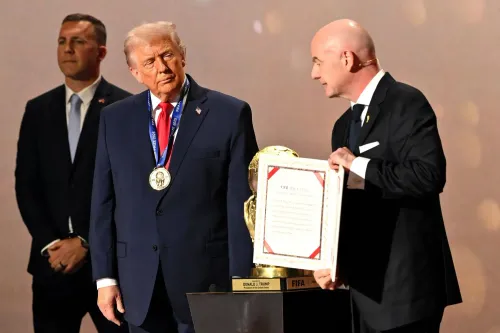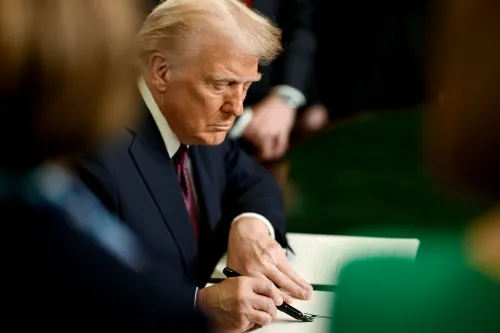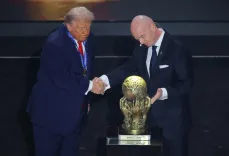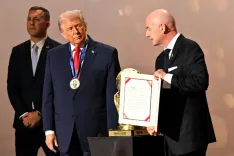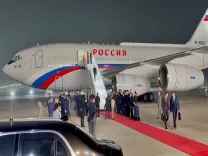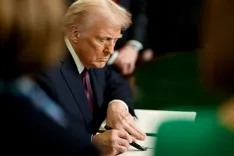Is the EU Facing Pressure for an Unfair US Tariff Agreement?

Synopsis
Key Takeaways
- The EU is firm in its trade negotiations with the US.
- Current US tariffs include a 25% levy on steel, aluminum, and automobiles.
- The EU is preparing for possible retaliatory tariffs.
- Legal action against US tariffs may be considered through the WTO.
- Efforts to diversify trade relationships are underway.
Strasbourg, May 6 (NationPress) The European Union (EU) asserts that it will not be coerced into accepting an unbalanced trade deal with the United States, stated European Commissioner for Trade and Economic Security Maros Sefcovic on Tuesday at the European Parliament in Strasbourg, France.
"We do not feel weak. We do not feel under undue pressure to accept a deal which would not be fair for us," Sefcovic expressed to the European Parliament, highlighting that the EU has already tested and presented proposals to the US.
"As you can imagine, it's not easy," he remarked, noting that despite the EU's genuine efforts, the negotiations with the US might ultimately fail to achieve a favorable result.
The EU currently faces a 25 percent tariff on steel, aluminum, and automobiles imposed by the US, alongside 10 percent reciprocal tariffs on most other exports. The union is preparing for the potential conclusion of a 90-day tariff truce, after which these levies could escalate to 20 percent when the pause ends on July 8.
Sefcovic reiterated that the EU is ready to reintroduce balancing measures if negotiations do not succeed, as reported by the Xinhua news agency. "We are preparing for the possible and might-be-needed rebalancing," he stated, referring to retaliatory tariffs that the EU had initially suspended to facilitate discussions.
He also indicated that the EU might seek legal recourse against US tariffs through the World Trade Organization, characterizing the tariffs as "simply unjust, unfair, and in total breach of international commercial law."
Beyond the transatlantic relationship, the EU is actively working to broaden its trade connections with other international partners, stressing the importance of engaging with the 87 percent of global trade that does not involve the US.
In recent months, the bloc has advanced or finalized trade agreements with the South American trade bloc Mercosur, the United Arab Emirates, and Canada, marking significant progress in diversifying its economic alliances.


